What are Kakadu Plums?
Kakadu plums are fruits native to Australia. This delicious tropical fruit has become very popular because of its health benefits.
Kakadu plums contain high levels of vitamin C, potassium, fibre, antioxidants, and other nutrients. They also provide a great source of energy. In addition, they are rich in polyphenols, flavonoids, anthocyanins, and carotenoids. These compounds are known to boost immunity and fight cancer.
The Kakadu plum ( Terminalia ferdinandiana ), also known as the gubinge or billygoat plum, is a small fruit found in the open Eucalyptus forests of northern Australia.
It is pale green with a stone in the centre, over 1.5-2 cm long, and weighs 2-5 grams. It is fibrous and has a sharp, bitter taste.
In traditional medicine, Kakadu plums have been used to treat colds, flu, and headaches. They were also used as an antiseptic or soothing balm for the limbs.
More recently, they have been recognized for their high nutritional value.
Here are the best health benefits of Kakadu plums.
Kakadu Plums. The Best Benefits
Kakadu plums (Terminalia ferdinandiana) are a type of small, yellow fruit native to Australia. They are high in vitamin C and are thought to have a number of health benefits, including:
- Antioxidant effects: Kakadu plums are rich in antioxidants, which can help protect the body's cells from damage caused by free radicals.
- Anti-inflammatory effects: Some research suggests that the compounds found in Kakadu plums may have anti-inflammatory effects, which may help reduce inflammation in the body.
- Antimicrobial effects: Kakadu plums have been shown to have antimicrobial properties, which means they may be able to help kill or inhibit the growth of certain types of bacteria and fungi.
- Skin health: Kakadu plums are sometimes used in skin care products due to their high vitamin C content, which may help improve skin health.
- Oral health: Some research suggests that Kakadu plums may have benefits for oral health, including reducing plaque formation and improving gum health.
It's important to note that more research is needed to fully understand the potential health benefits of Kakadu plums and to determine the appropriate dosage and usage.
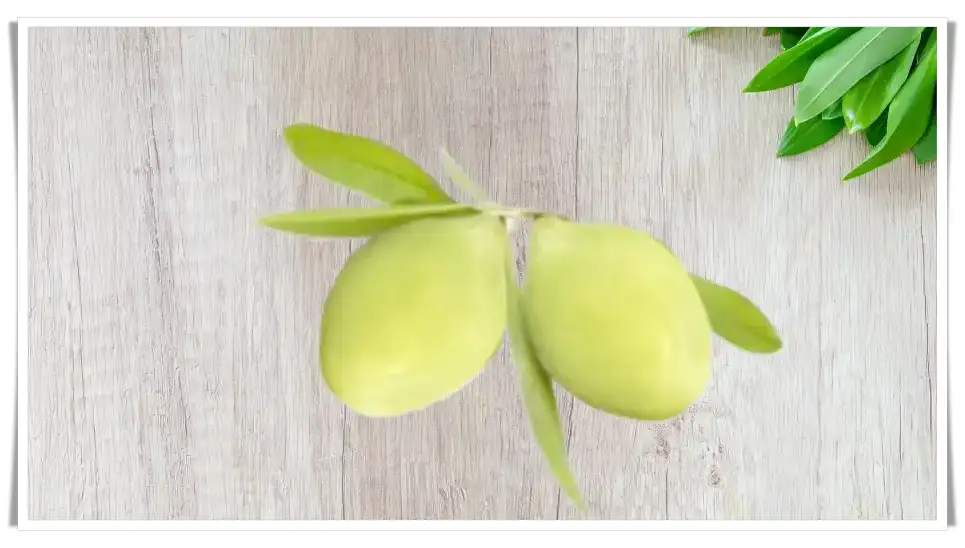
Kakadu Plums. The Best Benefits
Fruits Are Very Nutritious
Kakadu Plumbs
Contain antioxidants and other nutrients that promote good health. They are also very low in calories. In addition, they are delicious and nutritious. Here is the nutritional breakdown of 100 grams of the edible part of the fruit:
- Calories: 59
- Protein: 0.8 grams
- Carbs: 17.2 grams
- Dietary fiber: 7.1 grams
- Fat: 0.5 grams
- Sodium: 13 mg
- Vitamin C: 3,230% of the daily dose (DD)
- Copper: 100% of DD
- Iron: 13.3% of the DD
It is especially rich in vitamin C, a powerful antioxidant that protects your body from damage caused by reactive molecules known as free radicals.
In addition, it is an excellent source of copper, which is used to form red blood cells, bones, connective tissue, and important enzymes, as well as to support proper immune system function and fetal development.
Kakadu plums are also rich in iron, which is essential for the transport of oxygen throughout the body and the production of red blood cells.
Kakadu Plums. The Best Benefits
In addition, they are a good source of dietary fibre, which protects against constipation, colon cancer, and irritable bowel syndrome (IBS), and promotes gut health and blood sugar control.
Finally, Kakadu plums provide smaller amounts of thiamin, riboflavin, magnesium, zinc, and calcium, all of which are essential micronutrients for good health
The Richest Food Source of C Vitamin
Kakadu plums have the highest natural amount of vitamin C recorded in any food in the world. In fact, 100 grams of fruit provides well over 3,000% of your daily needs.
For reference, the same serving of oranges contains 59.1% of the DD, while the same amount of blueberries provides only 10.8% of the DD.

Kakadu Plums. The Best Benefits
Vitamin C is a powerful antioxidant that boosts the immune system, reduces oxidative stress, and may play a role in collagen synthesis, iron absorption, heart health, memory, and cognition.
For example, in adults with high blood pressure, a 500 mg dose of vitamin C reduced systolic blood pressure (the top number) by 4.85 mm Hg and diastolic blood pressure (the bottom number) by 1.67 mm Hg.
Additionally, a review of 15 studies found that people with diets high in vitamin C had a 16% lower risk of heart disease than people with low vitamin C intake.
Eating foods rich in vitamin C can also help absorb plant sources of iron.
In fact, adding 100 mg of vitamin C to a meal can improve iron absorption by 67%. This can be especially helpful for vegetarians, vegans, and people with iron deficiency.
The vitamin C content of Kakadu plums declines rapidly after picking, so the fruit is usually frozen for transport and sale.
In addition, the vitamin C content of these fruits is also reduced when cooked. One experiment found that a Kakadu plum sauce provided 16.9% less vitamin C than raw fruit.
However, Kakadu plums remain an excellent source of vitamin C – fresh or cooked.
Find Out More About Kakadu Plum!
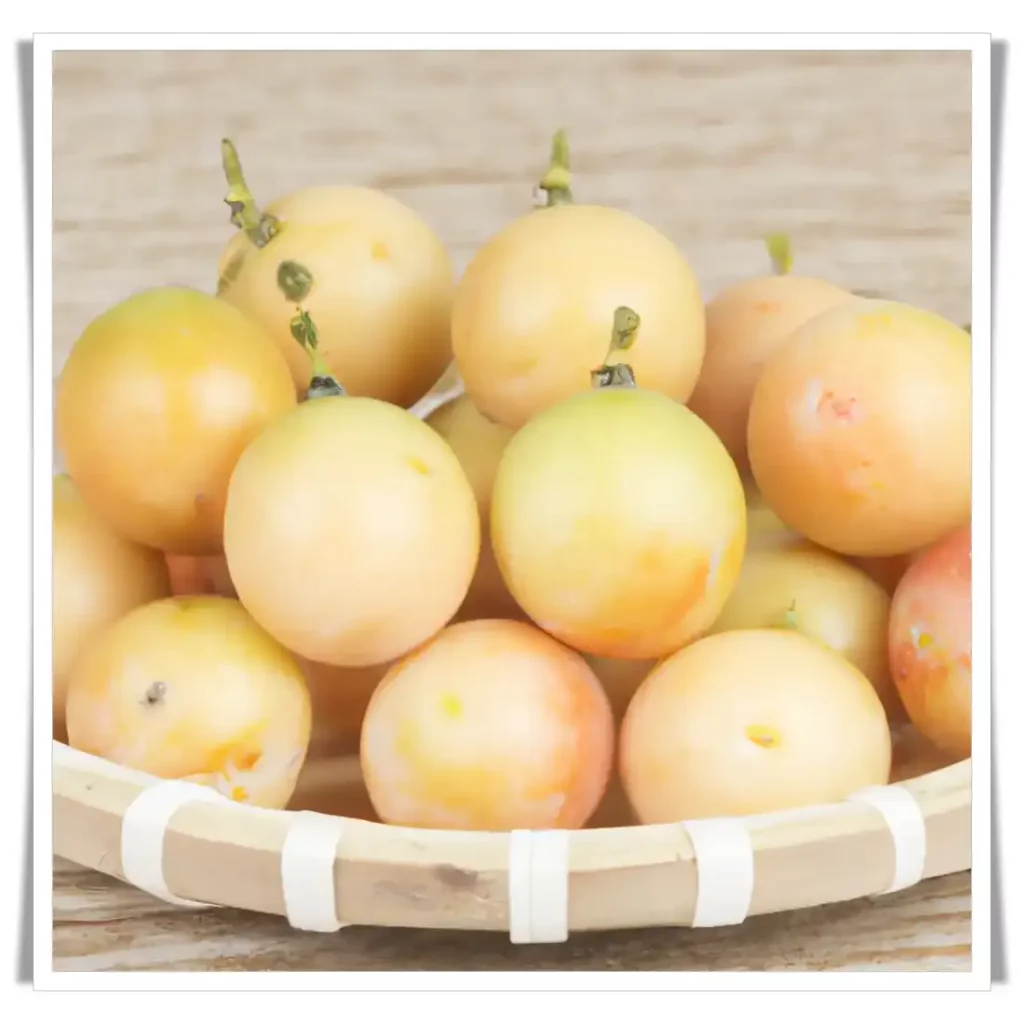
Kakadu Plums. The Best Benefits
Good Source of Ellagic Acid
Kakadu plums are rich in a type of organic acid known as ellagic acid.
Ellagic acid is a polyphenol known to be a powerful antioxidant. It is also commonly found in strawberries, berries, walnuts, and almonds.
It has been linked to numerous health benefits, including anti-cancer, anti-inflammatory, antimicrobial, and prebiotic effects.
For example, test tubes and animal studies have shown that ellagic acid can block tumour growth and cause tumour cell death in a variety of cancers.
However, more human research is needed to understand the health effects of dietary ellagic acid.
There are currently no recommendations on the daily intake of ellagic acid. Some reports estimate the average daily intake to be around 4.9-12 mg.
Kakadu plums contain approximately 228-14,020 mg of ellagic acid per 100 grams of dried fruit. The exact amount is determined by the tree, climate, soil conditions, maturity, and storage conditions.

Kakadu Plums. The Best Benefits
Rich Source of Antioxidants
Kakadu plums are an excellent source of antioxidants. They contain 6 times the amount of polyphenols and 13.3 times more antioxidant activity than blueberries.
Antioxidants help neutralize unstable molecules called free radicals. Excess numbers of these molecules can harm your body and cause oxidative stress.

Kakadu Plums. The Best Benefits
Free radicals develop naturally, but a poor diet, as well as environmental toxins, air pollution, and cigarette smoke, can increase their numbers. In addition to vitamin C and ellagic acid, prunes contain many other antioxidants, including:
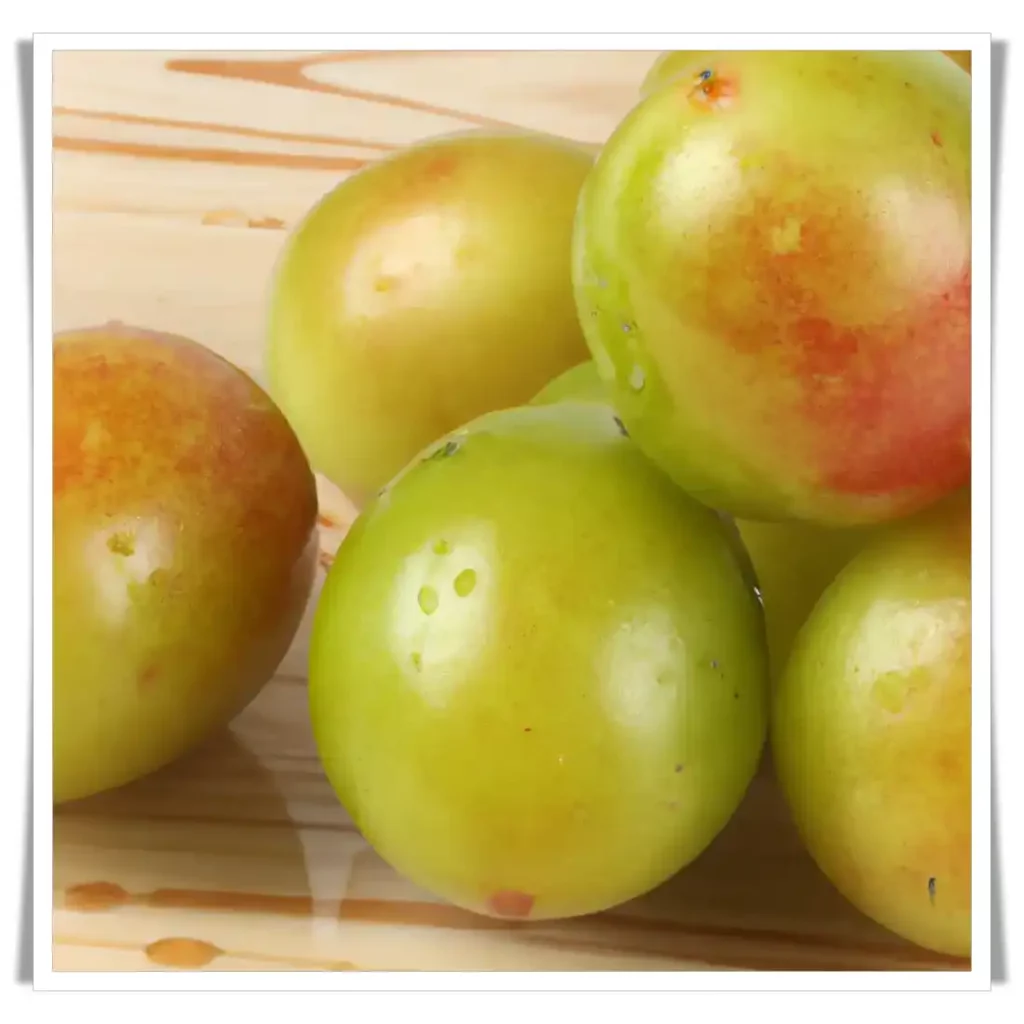
Kakadu Plums. The Best Benefits
Flavonols. These are linked to heart health and may have stroke-reducing, cancer-fighting, and antiviral effects. The main types of flavonols in Kakadu plums are kaempferol and quercetin.
Aromatic acids. In Kakadu plums, the main types are ellagic and gallic acid. Gallic acid is associated with the prevention of neurodegenerative diseases.
Anthocyanins. These are the colour pigments in the fruit and are associated with good urinary tract health, a lower risk of some cancers, healthy ageing, and improved memory and eye health.
Lutein. This antioxidant is a carotenoid that is linked to eye health and may protect against macular degeneration and heart disease.
The high antioxidant content and activity of Kakadu plums mean they can help prevent and fight disease. However, more research is needed to determine the effects of the fruit itself.
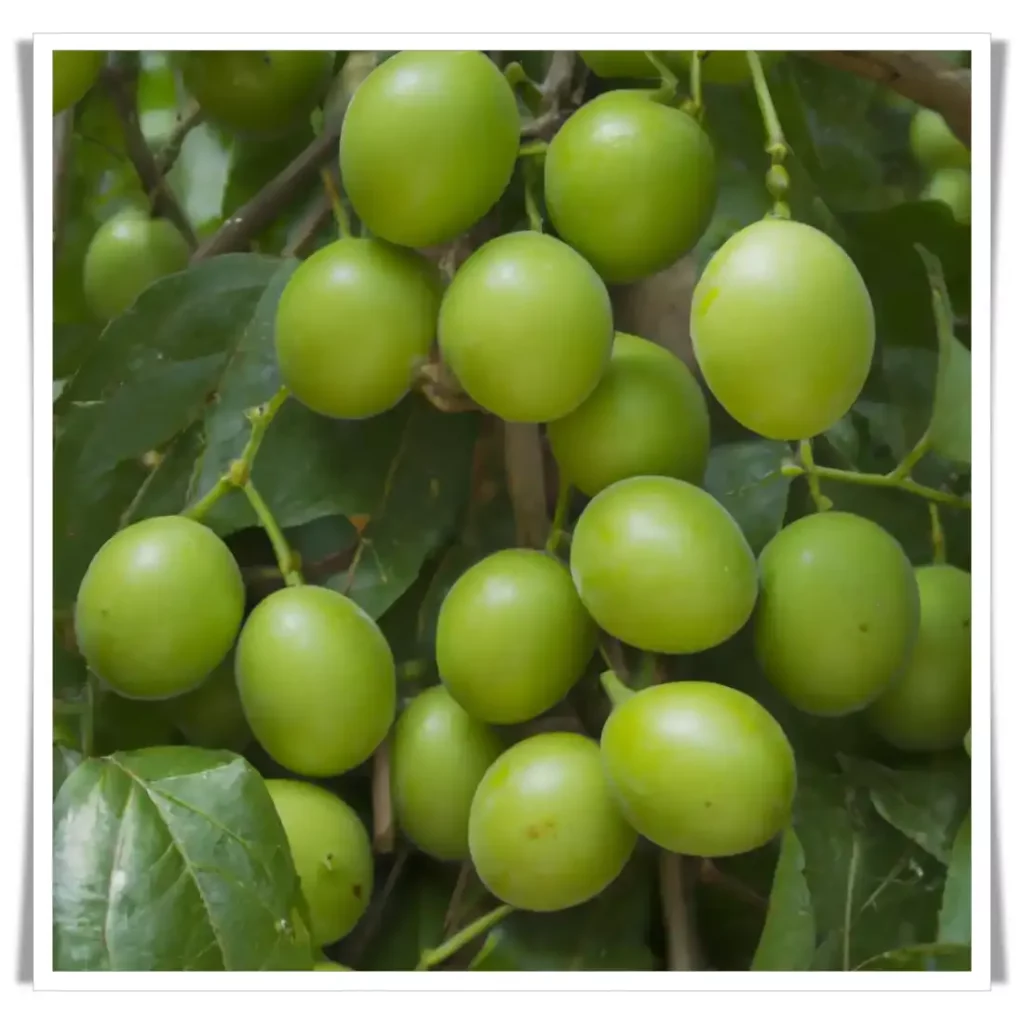
Kakadu Plums. The Best Benefits
You can also read another exciting article ''The Best Tips to Eat Less and Lose Weight Faster'' if you click here!
It Has Cancer-Fighting Properties
The nutrients in Kakadu plums may help prevent and fight cancer.
Test-tube studies have indicated that extracts from these fruits have anti-inflammatory properties that may help prevent some types of cancer
These extracts also promote the death of cancer cells in test-tube studies, which is an important immune defence against cancer and cell mutations.
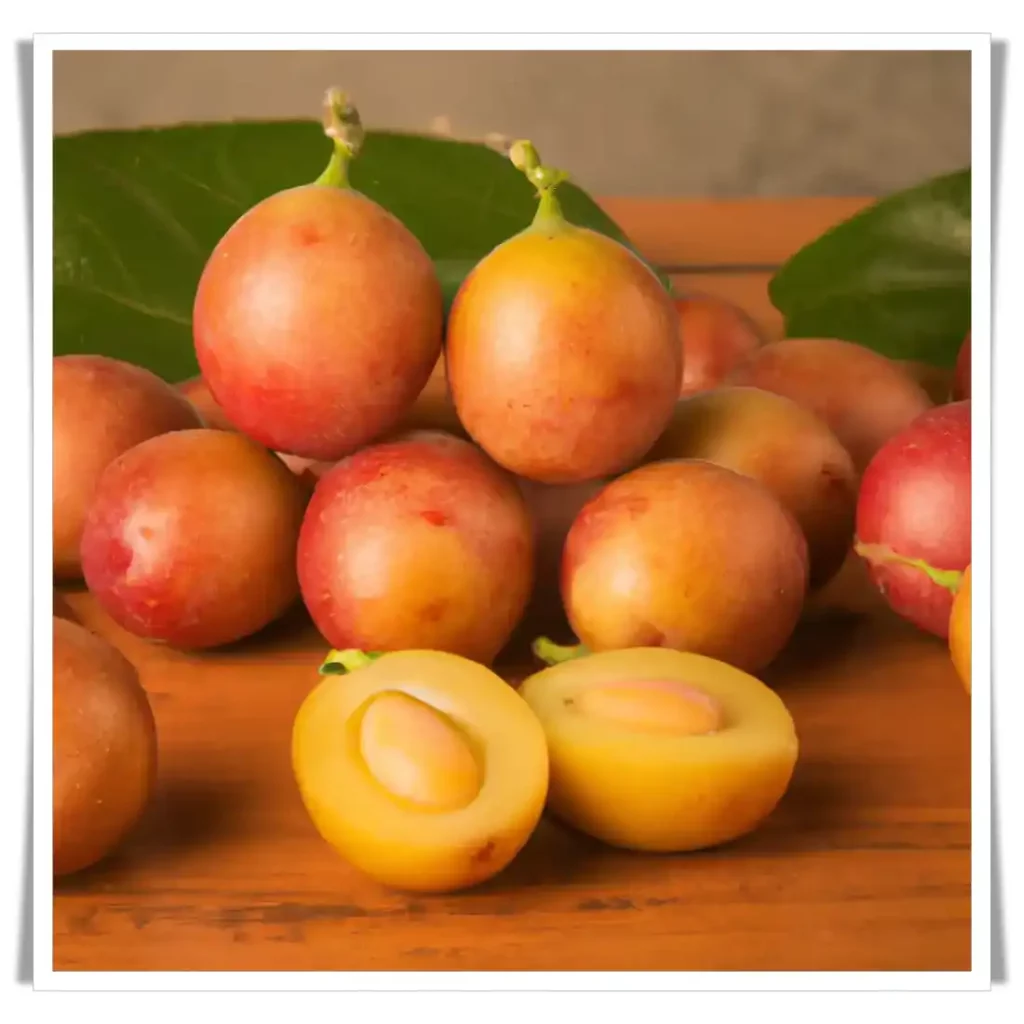
Kakadu Plums. The Best Benefits
Protects Against Inflammatory Diseases
Kakadu plums may help protect against inflammatory diseases such as rheumatoid arthritis.
Rheumatoid arthritis can be triggered by certain infections. Test tube studies indicate that Kakadu fruit and leaf extract inhibited the bacteria that cause these infections.
This effect is due to the high tannin content of this fruit, which comes from ellagitannin – a form of ellagic acid.
Although this research is promising, more evidence is needed.
Kakadu Plums Help Skin Health
Kakadu plums are high in vitamin C, which is an important nutrient for skin health. Vitamin C is a potent antioxidant that can help protect the skin from damage caused by free radicals, which are unstable molecules that can harm cells and contribute to the development of skin ageing and certain skin conditions.
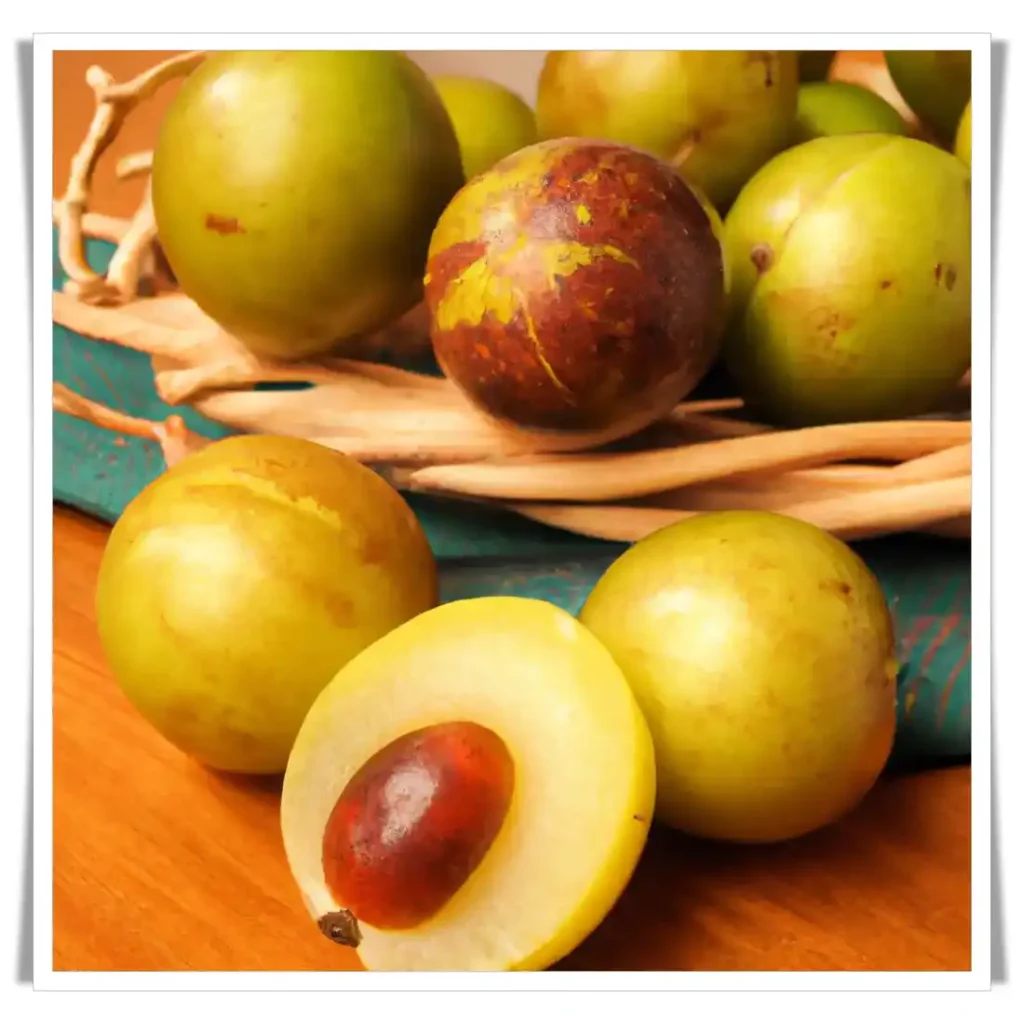
Vitamin C also helps to support the production of collagen, a protein that gives structure to the skin and helps it to appear firm and youthful. In addition, some research suggests that vitamin C may have skin-lightening effects and may help reduce the appearance of hyperpigmentation or the darkening of certain areas of the skin due to an excess pigment. However, it's important to note that more research is needed to fully understand the potential skin benefits of Kakadu plums and to determine the appropriate dosage and usage.
It Offers Natural Antibacterial Properties
Kakadu plums have natural antibacterial properties that may make them useful for preserving food and preventing foodborne illness.
Research has shown that their extracts, seeds, bark, and leaves inhibit the growth of common food pathogens such as Listeria monocytogenes.
Therefore, food preservation solutions using Kakadu plum extract can be a natural and safe alternative to synthetic methods.
Additionally, the fruit's antibacterial, antioxidant, and anti-inflammatory properties have led to its use in some skincare and acne-fighting products.
Kakadu Plums. The Best Benefits

Kakadu plums are very rich in both oxalates and vitamin C.
While most people can eliminate excess amounts of these substances, in sensitive individuals, high intakes have been linked to kidney stone formation.
Risk factors include genetics and kidney and inflammatory diseases.
Those who are at risk may need to limit their intake of oxalates to 40-50 mg per day. The Kakadu plum contains 2717 mg of oxalate per 100 grams of dried fruit, far exceeding these limits.
Sensitive people should also limit their intake of vitamin C to the reference intake of 90 mg per day.
Potential Risks
Kakadu plums can be eaten fresh, but because they are very fibrous and sour, they are more commonly used in jams, preserves, sauces, and juices.
To maintain their size and quality, Kakadu plums are usually frozen directly after harvest.
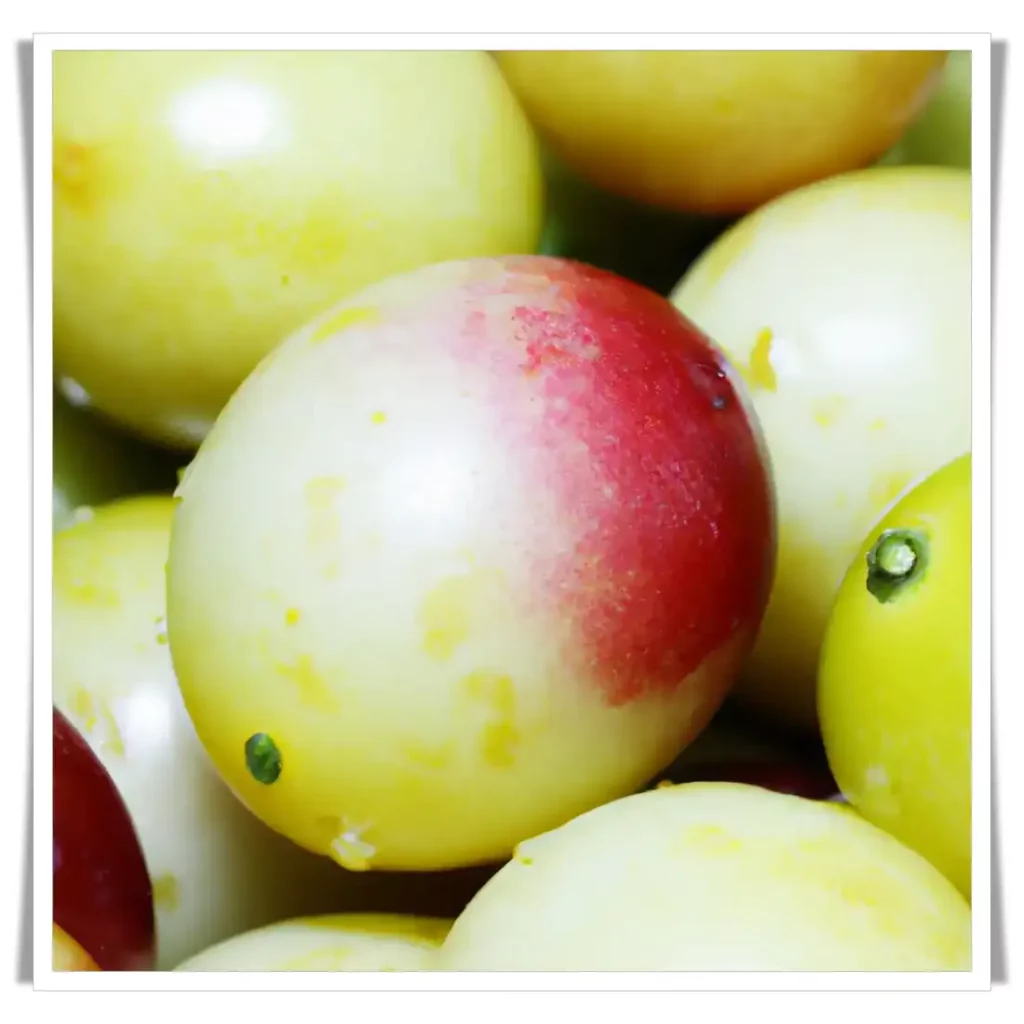
Kakadu Plums. The Best Benefits
If you have questions or want to comment, please leave them below and I will answer as soon as I can. Thank you for reading ''Kakadu Plums - The Best Benefits''


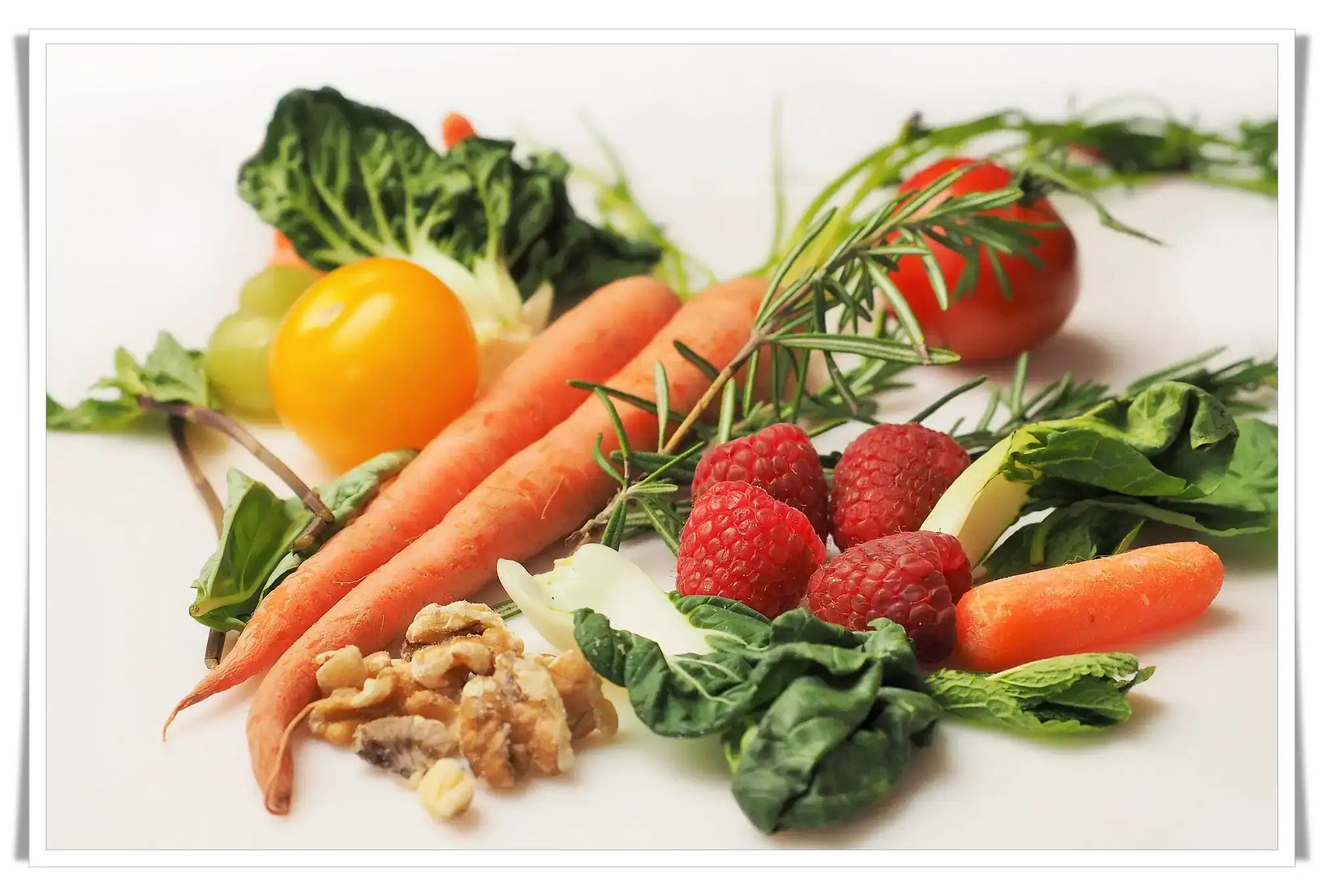


Pingback: 12 Best Myths About Sleeping, Busted - bc-educate
I really like the Kakadu Plums. They taste great and are incredibly healthy for you. The plums are also very nutritious, so they help to keep your body in good shape as well. I love how this product is simple and easy to use, it’s not difficult at all but yet still has a high-quality performance that can be trusted by anyone who wants to try it out!
I don’t think the title of your article matches the content lol. Just kidding, mainly because I had some doubts after reading the article.
Can you be more specific about the content of your article? After reading it, I still have some doubts. Hope you can help me. https://www.binance.com/sv/register?ref=UM6SMJM3
I don’t think the title of your article matches the content lol. Just kidding, mainly because I had some doubts after reading the article.
I don’t think the title of your article matches the content lol. Just kidding, mainly because I had some doubts after reading the article.
Wow, amazing blog format! How lengthy have you ever been running a blog for?
you made blogging glance easy. The full look of your website is
fantastic, let alone the content material! You can see similar:
najlepszy sklep and here sklep internetowy
Hey there! I know this is somewhat off topic but I was wondering
which blog platform are you using for this website?
I’m getting fed up of WordPress because I’ve had problems with
hackers and I’m looking at alternatives for another platform.
I would be great if you could point me in the direction of a good platform.
I saw similar here: sklep internetowy and also here:
e-commerce
Thank you for your sharing. I am worried that I lack creative ideas. It is your article that makes me full of hope. Thank you. But, I have a question, can you help me?